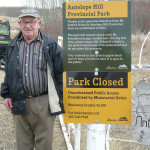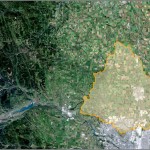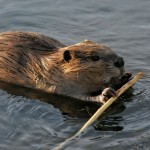Reading Time: 2 minutes Gottlob Schmidt had a dream of preserving the land that he has spent so much time on. And the realization of that dream will benefit all Albertans with the creation of the province’s 76th provincial park. “It has always been my wish that someday I could leave this land to someone else,” said the 90-year-old […] Read more

Rancher’s generous donation is a gift for all Albertans

Wildlife damage is a problem — but not reporting a bigger one
Program changes aren’t going to happen if producers don’t start reporting wildlife losses
Reading Time: 2 minutes Wildlife damage is a big problem across Alberta — but you wouldn’t know it from the number of beef producers reporting losses to the Alberta government. About 60 per cent of producers recently surveyed about wildlife damage said that they never reported losses from predators, while 80 per cent never reported forage competition from ungulates. […] Read more

Naked crows found in Red Deer a rare pair — thank goodness
The nearly featherless juveniles found in central Alberta are only the second known case in North America
Reading Time: 2 minutes The crow has never been a symbol of nature’s beauty, but even their most ardent admirers wouldn’t warm to a pair of naked juveniles recently found in central Alberta. But the rare featherless baby crows are causing a sensation among wildlife lovers, and even one of North America’s most respected ornithologists. It’s only the second […] Read more

Wildlife, predators costing Alberta beef producers millions
Reading Time: < 1 minute Ninety-four per cent of Alberta beef producers have suffered losses because of wildlife, a two-year survey by Alberta Beef Producers (ABP) and the Miistakis Institute has found. Eighty-one per cent of these were from ungulates such as deer or elk, 74 per cent from predators (such as wolves, grizzly bears, and including coyotes) and six […] Read more

What’s it worth? New project aims to nail down the value of wetlands
Innovative new project features a reverse auction in which producers ‘bid’ on the compensation they’d want for giving up acres
Reading Time: 4 minutes Wetlands often present a difficult choice for producers — keep them for their environmental value or drain them for the sake of the bottom line. Until recently, converting wetlands to croppable land was commonplace, and even encouraged by government projects that paid farmers to drain them. Wetlands advocates know it will take compensation to reverse […] Read more

Carbon storage could equal cash for your grass
Reading Time: 2 minutes Alberta farmers who practise no-till cropping have been eligible to apply for carbon credits since 2002. We know that grasslands capture and store carbon, so why aren’t landowners with pasture getting paid for their contribution? That’s the focus of a University of Alberta study on the environmental benefits of things such as wildlife habitat and […] Read more

Planning is key to preparing an effective shelterbelt
Specialist recommends visiting mature shelterbelts and talking to landowners
Reading Time: 2 minutes Trees and shelterbelt planting is a long-term investment that requires careful planning and design. “Ask yourself what you want to accomplish by planting trees or shelterbelts on your property,” said Toso Bozic, a provincial agroforestry/bioenergy specialist. Trees should always be managed with future generations in mind, he said. “The goals can be many — ranging […] Read more

Confused about wildlife compensation?
Reading Time: < 1 minute Alberta Beef Producers has created a road map for accessing compensation programs for carnivore, ungulate, and bird damage to livestock and crops. The system can be “rather convoluted” as there is one process for hay and crop damage, and another for predator damage (but not for coyotes), shot livestock and waterfowl damage prevention. As well, […] Read more

Beavers cause problems, but also provide benefits
Understanding beaver biology and ecology can help you coexist with beavers on your property
Reading Time: 2 minutes They’re one of Canada’s national symbols but for some farmers, beavers are nothing more than pests who destroy trees and flood land. But it’s time to think of the industrious rodents in a new way, says Lorne Fitch, provincial riparian specialist with Cows and Fish. “Beavers are a keystone species,” said Fitch. “They are one […] Read more

Photo: Hungry elk herd
Reading Time: < 1 minute No, this is not an elk farm. This herd was just passing through the pasture fields, on a ranch between Okotoks and Turner Valley. Wildlife damage usually increases in late winter as hunger makes wildlife more bold, said Charity Wallace of Alberta Environment and Sustainable Resource Development. Limiting access to food sources, like bales and […] Read more

